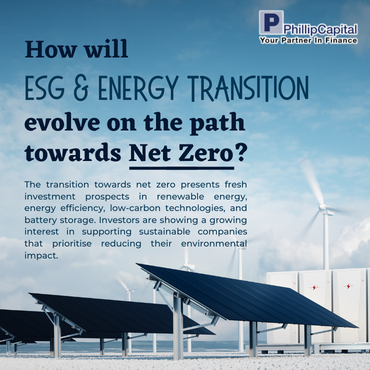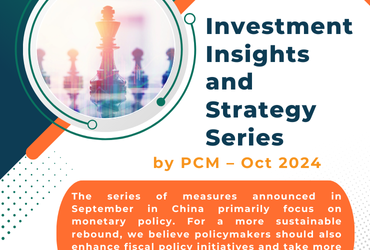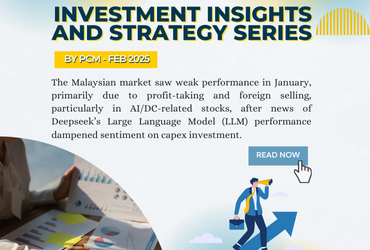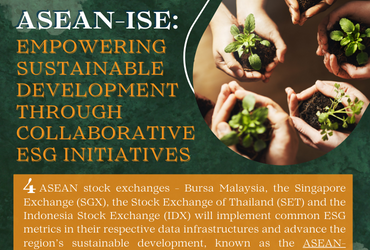
There are multiple factors that have contributed to sustainability becoming a major priority. The demand from investors and financial markets for a robust environmental, social, and governance (ESG) strategy and a clear path towards achieving net-zero carbon emissions is growing. Our previous article explained how adopting ESG Investing can create value for corporations, individuals, investors, and institutions.
Net Zero and Energy Transition
The goal of achieving net zero emissions by 2050 is a response to the urgent need to address climate change. Net zero refers to the balance between the amount of greenhouse gas emissions produced and the amount removed from the atmosphere. To limit global warming to 1.5 degrees Celsius and avoid the worst impacts of climate change, the Intergovernmental Panel on Climate Change (IPCC) has recommended that the world reach net zero emissions by around 2050.
According to McKinsey’s analysis in “The Transition to Net-Zero” report from January 2022, achieving net zero emissions will require a substantial transformation of the global economy and significant investments. The report estimates that between 2021 and 2050, around $275 trillion will need to be spent on physical assets for energy and land-use systems as part of this transition. This translates to an average of $9.2 trillion per year, representing an annual increase of up to $3.5 trillion compared to current levels.
The transition from fossil fuels to clean and renewable energy is central to accomplishing the goal of net zero emissions. The following chart illustrates the anticipated transition towards renewable energy consumption in the upcoming years.

Source: Schroders
Financing the Energy Transition
A crucial aspect of achieving a successful energy transition towards net zero is ensuring sufficient funding to implement the required changes within the set timeframes. This includes significant investment in low and no-carbon technologies to facilitate the shift towards clean energy and the phasing out of existing carbon-intensive infrastructure. While substantial funding commitments were made at COP27 to support this transition, there are still some notable financing challenges to overcome. For example, some energy transition projects are perceived as high-risk investments, and developing countries may lack sufficient public funds compared to wealthier nations.
Despite this, there are positive signs that private investment is being attracted to renewable power projects in some countries like India and Morocco, which have well-designed larger-scale initiatives. Additionally, governments can help to facilitate private-sector investment by setting ambitious clean energy targets, developing investment-friendly regulations, and working with international financial institutions to mitigate risk. Finally, in September 2023, the United Nations will host a “Climate Action Summit” ahead of COP28 in the UAE, where countries will be expected to propose concrete and reliable climate action plans. This summit will provide a platform for further discussions on various climate-related topics.
The Relevance of Net Zero to Investors
The transition towards net zero presents fresh investment prospects in renewable energy, energy efficiency, low-carbon technologies, and battery storage. Companies that successfully adapt to this shift and decrease their carbon footprint are expected to be more resilient and competitive in the long run. Conversely, companies that fail to adapt may face increased risks and reduced competitiveness. In addition, investors are showing a growing interest in supporting sustainable companies that prioritise reducing their environmental impact. It is crucial for investors to understand how the shift towards net zero will affect different industries and use this knowledge to make informed investment decisions that are in line with their values and long-term objectives.
We believe that Malaysia is moving in the right direction towards becoming an ESG-focused nation. The country has recently introduced tax and non-tax incentives for businesses that adopt green technologies, as well as funding for research and development in sustainable industries and sustainable collaborations with leading companies in Budget 2023. Moreover, the Prime Minister Anwar Ibrahim has recently announced that a Centralised Sustainability Reporting platform will be rolled out in April 2023, which will allow both public-listed companies and non-listed SMEs to calculate their carbon emissions impact. Overall, in the longer run, we believe that the Malaysian government will continue to introduce new policies and initiatives to promote sustainable development and ESG adoption, which will create new opportunities for investors who prioritise ESG factors in their investment decisions.
Phillip Managed Account for Retirement (PMART) ESG and Phillip Managed Account (PMA) ESG
PhillipCapital Malaysia offers discretionary portfolio that invests in stocks with high ESG ratings from the F4GBM and F4GBMS Indices, namely PMART ESG and PMA ESG. There are both conventional and Shariah options available. PMART ESG and PMA ESG are suitable for investors who want to optimise the risk-adjusted return by constructing a diverse sustainable portfolio of ESG companies.
The following are the companies in which both Conventional and Shariah ESG mandates invest, respectively. We like these companies because they have received high ESG ratings, which we believe can contribute to their long-term sustainability, responsibility, and profitability.
Conventional ESG Portfolio
| No | Stock | F4GBM ESG Rating [1] |
| 1 | AEON CO. (M) BHD | 3-Star |
| 2 | BERMAZ AUTO BHD | 4-Star |
| 3 | CTOS DIGITAL BERHAD | 4-Star |
| 4 | INARI AMERTRON BHD | 4-Star |
| 5 | KELINGTON GROUP BERHAD | 3-Star |
| 6 | MATRIX CONCEPTS HOLDINGS BHD | 3-Star |
| 7 | MALAYAN BANKING BHD | 4-Star |
| 8 | PUBLIC BANK BHD | 4-Star |
| 9 | SIME DARBY BHD | 3-Star |
| 10 | TELEKOM MALAYSIA BHD | 4-Star |
| 11 | TENAGA NASIONAL BHD | 3-Star |
| 12 | YINSON HOLDINGS BHD | 4-Star |
Shariah ESG Portfolio
| No | Stock | F4GBMS ESG Rating [1] |
| 1 | AEON CO. (M) BHD | 3-Star |
| 2 | BERMAZ AUTO BHD | 4-Star |
| 3 | CTOS DIGITAL BERHAD | 4-Star |
| 4 | INARI AMERTRON BHD | 4-Star |
| 5 | MATRIX CONCEPTS HOLDINGS BHD | 3-Star |
| 6 | SCIENTEX BERHAD | 3-Star |
| 7 | SIME DARBY BHD | 3-Star |
| 8 | TELEKOM MALAYSIA BHD | 4-Star |
| 9 | TENAGA NASIONAL BHD | 3-Star |
| 10 | VITROX CORPORATION BHD | 4-Star |
Note:
[1] ESG Ratings of Public Listed Companies (PLCs) assessed by FTSE Russell in accordance with FTSE Russell ESG Ratings Methodology
| Grade | Description |
| 4-star | Top 25% by ESG Ratings amongst PLCs in FBM EMAS that have been assessed by FTSE Russell |
| 3-star | Top 26-50% by ESG Ratings amongst PLCs in FBM EMAS that have been assessed by FTSE Russell |
| 2-star | Top 51%-75% by ESG Ratings amongst PLCs in FBM EMAS that have been assessed by FTSE Russell |
| 1-star | Bottom 25% by ESG Ratings amongst PLCs in FBM EMAS that have been assessed by FTSE Russell |
Disclaimer:
The information contained herein does not constitute an offer, invitation or solicitation to invest in Phillip Capital Management Sdn Bhd (“PCM”). This article has been reviewed and endorsed by the Executive Director (ED) of PCM. This article has not been reviewed by The Securities Commission Malaysia (SC). No part of this document may be circulated or reproduced without prior permission of PCM. This is not a collective investment scheme / unit trust fund. Any investment product or service offered by PCM is not obligations of, deposits in or guaranteed by PCM. Past performance is not necessarily indicative of future returns. Investments are subject to investment risks, including the possible loss of the principal amount invested. Investors should note that the value of the investment may rise as well as decline. If investors are in any doubt about any feature or nature of the investment, they should consult PCM to obtain further information including on the fees and charges involved before investing or seek other professional advice for their specific investment needs or financial situations. Whilst we have taken all reasonable care to ensure that the information contained in this publication is accurate, it does not guarantee the accuracy or completeness of this publication. Any information, opinion and views contained herein are subject to change without notice. We have not given any consideration to and have not made any investigation on your investment objectives, financial situation or your particular needs. Accordingly, no warranty whatsoever is given and no liability whatsoever is accepted for any loss arising whether directly or indirectly as a result of any persons acting on such information and advice.







